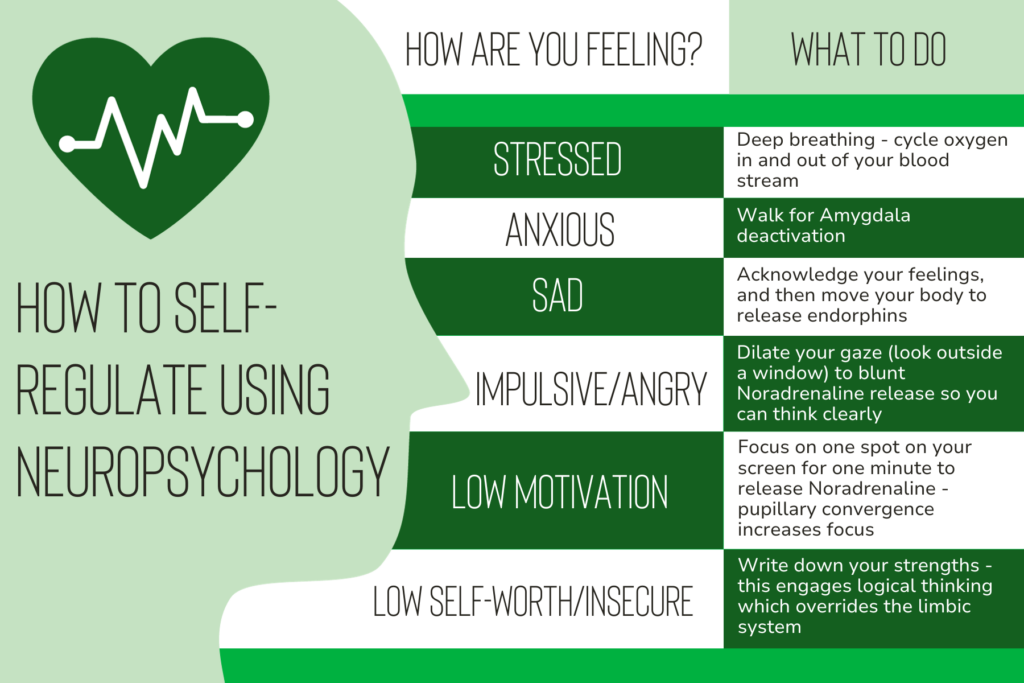PROJECTS
Trauma-Sensitive Workplace (TSW) / Self-Care Practices
Why is it important to develop my own self-love plan?
Self-Love is something that should be individualized. Your plan should include things that work for you! When we develop a self-love plan, we take inventory of our current stress, strategies, and can see our areas of need when it comes to implementing self-love! There is no one-size-fits-all plan, and we want to make sure any techniques you use actually help YOU!
Self-Love plans are good for identifying in-the-moment strategies for short term stress reduction, as well as long-term habits to develop a more resilient way of being!
How to develop my own self-love plan?
Adverse Childhood Experiences
Stress Inventory
ProQol5
Are you Stressed?
Secondary Traumatic Stress Scale
Burnout, Compassion Fatigue and Vicarious Trauma Assessment
Compassion Satisfaction Self-Test
Common Stress Reactions
Lifestyle Behaviors
Self-Care Assessment
Resilience, Balance, and Meaning Assessment and Plan
Wellness Practice Compass Assessment
Quick Fix Resources
Feeling stressed and needing a quick fix? Look below for some in-the-moment resources to help you relax!

Pause-Reset-Nourish, or PRN, is a flexible plan you can develop and individualize to fit in your life-whether you need stress relief quickly, quietly, and in the moment or if you have the time and space for more techniques- PRN can be whatever you need it to be!
PRN Information Sheet
Music is something you can individualize for yourself and your needs. You can listen to music when you’re feeling stressed, sad, anxious, mad, low in motivation, or any other time! You should take time to create a playlist for yourself and your emotional needs with your favorite songs. Take a break when you need and play a song you need!
Eight Dimensions of Self-Love
Personal self-care is any activity that we do deliberately to take care of our personal and individual well-being, including our mental, emotional, and physical health. Incorporate activities that allow your brain both stimulation and rest for critical thinking, curiosity, and creativity!
Examples include:
Engage in meaningful hobbies:
-Record collecting
-Gardening
-Learn a new recipe or new cooking skill
-Read a book, magazine or newspaper
-Listen to a podcast or audiobook
-Try something new
-Check out this list of over 1000+ hobbies
Engage in creative or artistic activities:
-Paint
-Doodle, draw or color
-Embroidery, crotchet, diamond dots
-DIY projects
-Puzzles
-Find a local art class
-Daydream
-Write
Engage in stimulating activities:
-Learn a new language
-Learn to play an instrument
-Play a mental game like chess or scrabble
-Watch a documentary
-Visit a museum
-Build your vocabulary
-Crosswords, sudoku, puzzles, brainteasers
-Play video games
-Participate in discussions or debates
Engage in personal growth:
-Practice living in the moment
-Learn self-acceptance
-Practice self-reflection
-Practice positive self-talk or daily affirmations
-Meditate and breathing exercises
–Mindfulness activities
-Listen to music (see Music Therapy section below)
-Journal
Links and Additional Resources:
Sunday Scaries | A Mini-Meditation on Self-Care
How to Find A Hobby: All You Need to Know
8 Simple Self Improvement Principles
Taking Care of Yourself, University of Virginia Student Health and Wellness)
Strategies for Personal Care
Emotional self-love is the process of becoming aware of the feelings you are experiencing and then naming those feelings. It is the ability to cope with life stressors. When difficult times arise, or change occurs it is the ability to adapt to those experiences. Maintaining emotional self-love skills allows you to express feelings in a nourishing way, promote healthy connections with others, and have positive thoughts and feelings about your life.
The experience of having negative emotions such as anger and hostility, depression, grief, anxiety has been associated with general ill health. Specific disease conditions such as cancer and coronary heart disease have also been known to be connected to negative emotions such as the ones listed. Such is the opposite. Positive emotions have been linked to general better health.
Examples include:
Practice Self-Awareness
-Turn attention toward your body, notice physical sensations.
–Ask a friend to talk to you about your strengths and weaknesses.
–Meditate
-Ask for help when you need it!
-Understand what is or is not within your control.
-Journal
Practice Self-Compassion
-Limit media exposure
-Practice gratitude
-Learn to say no
-Practice positive self-talk
-Avoid negative thinking
-Get enough sleep
Engage Your Musical Side
–Music Therapy
-Develop playlists.
-Learn to play an instrument
-Sing along to familiar tunes
-Learn a new genre of music
Connect With Others
–Laugh with friends
-Host a game or movie night
-Volunteer
-Join a community group
-Go to a new restaurant with friends
Links and Additional Resources:
The 8 Dimensions of Wellness | Rocky Mountain University (rm.edu)
Laughter is the Best Medicine – HelpGuide.org
The Power of Self Compassion – YouTube
10 Minute Meditation for Self Love – YouTube
Emotional Wellness Toolkit | National Institutes of Health (NIH)
Emotional Intelligence Toolkit – HelpGuide.org
Spiritual self-love is comprised of actions we take to deepen our connection with our higher self: who we truly are. This part of ourselves is the REAL us, driven by our deep desires and what matters most to us at our core. It’s separate from the ego, and is instead driven by the soul. Practicing spiritual self-care not only leads to greater inner peace, but it can help us live in greater alignment with our core values.
Examples include:
Practice Meditation
-Deep Breathing
-Mindfulness meditation
-Visualization
-Repeating a mantra
-Yoga
Connect with yourself
-Keep a journal
-Read inspiring stories
-Focus on your goals, values, and beliefs
-Practice gratitude
-Practice forgiveness
-Practice non-judgement
-Unplug from technology
-Spend time in nature
-Spend time alone
Connect with Others
-Random acts of kindness and compassion
-Volunteer within your community
-Practice deepening connections with family and friends
Connect with Religion
-Join a religious institution
-Pray or focus on your notion of God
-Read religious texts
-Volunteer
-Connect with others with similar beliefs
-Join a prayer or study group
Links and Resources:
5 Must-Try Spiritual Self-Care Ideas to Thrive Daily
Music as a Form of Spiritual Self-Care
Spiritual Self Care
Take Care of Your Spirit
(“What is Spiritual Self Care? How to Practice It Today,” Beyond the Safe Harbor)
Take Care of Your Spirit | Mental Health America (mhanational.org)
Environmental self-care is any action you take to improve the conditions of the world around you. Your environment should motivate you rather than overwhelm you or stress you out. Focus on designing your environment to work for you, not against you! Incorporate some of the things below to make your home, work, and neighborhood safer, healthier, and more comfortable.
Examples Include:
At Home:
-Develop healthy routines
-Maintain a clean and safe living environment
–Benefits of a clean home
-The relationship between mental health and cleaning
–Spring cleaning tips
-Incorporate a daily tidy up time
-Hire a professional cleaning service
-Declutter and organize spaces
-Rearrange furniture to better suit your needs
-Decorate. Add items that bring you joy! (art, plants, mementoes, etc.)
-Monitor the use of technology
-Tips to reduce screen time
-Guide to conserving energy in your home
–Reduce, Reuse, Recycle
-Safety in the home
-Guide to home safety
–Fire Safety
–Online safety for parents.
–Safety tip sheets
-Check out these Additional tools
At the Office:
-Declutter and organize your work space
-Create an ergonomic workspace
-Decorate-add some personal or inspirational flair
-Quiet time or Focus time sign
-Pack lunch and snacks
-Take breaks outside
-Schedule walking meetings
-Ask for feedback from supervisors and peers
-Use your paid time off
-Listen to music
-Look into Employee Assistance Program
-Utilize support or peer groups
-Additional workplace wellness ideas
-Safety in the workplace
–Safety tips for the workplace
-Safety tips for social workers
–Printable tip sheet for social workers
In the Car:
-Keep it clean and safe
–Safety tips
-Emergency/ first aid kit
-Play your favorite music
-Keep some snacks and a drink on hand
-Aromatherapy
-Listen to podcasts or audio books
–Seated stretches On The Road yoga
–On The Road yoga
-Enjoy the view
In your Community:
-The importance of community and mental health
-Donating to charity
-Give back and volunteer
-Get out and vote
-Give blood or plasma
-Attend community meetings
-Shop local
-Host or attend a community gathering and support groups
Links and Resources:
The Environmental Dimension of Self-Care – LivingUpp
51 Environmental Self-Care Ideas To Boost Well-Being | Notes By Thalia
Environmental Wellness Toolkit | National Institutes of Health (NIH)
Financial self-care is very similar to the term “Financial Wellness”. It is the ability to exercise your own choices and feel in control of your personal finances. It Includes understanding financial processes related to savings, income, outcome, debt, and creating long term and short-term financial goals. It is learning to live within your financial means and setting up smart financial habits that can benefit long term financial goals.
Examples Include:
-Budget on paper
-Understand your income and outcome
-Create a savings account and save from each paycheck
-Check in with your credit score
-Check your bank account daily
-Set goals and limits for “emotional spending”
-Use the 50/30/20 Rule
-Research and create the best long-term goal for you and your budget
-Know your own finances
-Know Banking Basics
Links and Resources:
Useful Forms – Ramsey (ramseysolutions.com)
How to Budget With a Low Income – Ramsey (ramseysolutions.com)
Quick-Start Budget
Monthly Cash Flow Plan
Debt Snowball
6 Ways to Practice Financial Self Care | Pay Off Debt, Save More, Build Wealth – YouTube
Managing work-related stress can directly impact our day-to-day lives. The Trauma Sensitive Workplace Team survey found that on average WV DHHR staff work 46.5 hours per week; higher than the national average. Professional self-care is a great way to combat the different stresses that can arise from work and, at the same time, increase efficiency, boost your immune system, and allow you to give more to others than you were before.
Some Symptoms of Workplace Stress:
-Becoming easily agitated, frustrated, and moody.
-Feeling overwhelmed, like you are losing control.
-Have difficulty relaxing and quieting your mind.
-Feeling bad about yourself (low self-esteem), lonely, worthless, and depressed.
Things you can do to nurture yourself:
-Make time for lunch, and take regular breaks
-Do not repeatedly work late
-Do not work during time off
-Find a good mentor
-Get support from colleagues
-Take mental health days
-Learn to say no
-Learn, take a class
-Take vacation and sick days
10 Ways to Manage a Healthy Workplace:
-Start your day with a healthy breakfast
-Plan time for food
-Hydrate with plenty of water
-Take advantage of your break time – get some fresh air
-Personalize your workspace with plants, pictures, paintings
-Listen to music while you work
-Place a lamp or sunlamp at your desk for good lighting
-Take a 15 minute walk
-Establish good communication with your co-workers (non-work related chats)
Links and Resources:
The Self-Care Wheel: Wellness Worksheets, Activities & PDF (positivepsychology.com)
Self-Care at Your Desk Infographic
5 Self Care Tips When You Feel Broken – Bing video
Self Care Strategies in Trauma Work – Bing video
How to Do Self-Care and 3 Dumb Reasons People Don’t Do Self-Care – Bing video
Small Ways to Practice Self-Care in Difficult Times | Andy Crisis Wisdom – Bing video
Self-Care Planning: Working Towards Wellbeing – Bing video
SELF-CARE FOR SOCIAL WORKERS | PREVENT BURNOUT!!! – Bing video
5 Easy Self-Care Activities (You Can Even Do At Work) (coursecorrectioncoaching.com)
Life is busier and more hectic than ever these days. Social Self-Love is all about growing our feelings of love, appreciation, gratitude, and connection with others. Socializing is important for our mental health and is just one aspect of your self-care that should be tended to regularly. Activities that nurture and deepen the relationships we have with others allows for stronger bonds and help to create a sense of belonging and acceptance.
How to incorporate Social Self-Love:
-Pick up the phone and call or video chat with your friends when possible.
-Put a stop to toxic relationships or those that make you feel negative.
-Be an equal amount of a “yes” and “no” person. Empower yourself to stand behind what you decide.
-Make standing appointments to get together with those you care about and adjust them as needed.
-Don’t do things to be a people pleaser.
-Keep open communication with those you value where you’re safe to express that you’re only busy (not ignoring the relationship), as well as let them know that they are still a priority to you.
Five Social Self-Love Activities:
-Call a close friend – briefly catch up
-Meet up with a friend for a walk and talk: Connect emotionally and stay active at the same time (great for your physical self-care).
-Join an online support group: Sometimes, having others who can relate to your struggles and triumphs as a caregiver can be a great support system.
-Pair up with a friend for a fun activity: When you just need to take your mind off things, doing something fun and playful can help as a stress-reliever.
-Play with your pet: Our pets can be a great source of healing and support when we’re feeling down or just want to have fun.
Links and Resources:
Social Wellness Toolkit | National Institutes of Health (NIH)
The Big List of Self-Care Activities
Mae’s Minute: Self Care – Bing video
Self-Care Made Simple – Bing video
Activities for self care | Helping to make a list of things you like | TogetherWell – Bing video
Simple Self-Care Activity to Unwind the Mind 🖍 💜 – Bing video
21 Self Care Activities For A Tough Day | Self Care For Teachers – Bing video
20 Creative Self-Care Activities For Groups (positivepsychology.com)
23 Social Self-Care Ideas to Keep You Engaged and Happy – Kb in Bloom
Physical self-care is vital to help support our mind, body, and spirit, while also boosting our health and wellness. Research has shown that taking care of ourselves physically increases the level of serotonin in our body, helps boost our immune system and reduces stress. A healthy body is better able to respond to the unavoidable stressors of life. The body and the mind have a unique connection, and there are many techniques that help strengthen this bond.
Examples include:
Develop Healthy Routines:
Aim for a healthy diet:
-Cut out processed foods
-Meal prep for the week
-Practice mindful eating
-Monitor caffeine use
–Reduce alcohol consumption
–Quit smoking
Engage in exercise or activities that move your body:
-Aim for 15-20 minutes of exercise regularly
-Go for a walk
-Stretch everyday
-Practice good posture
-Breathing techniques to strengthen lungs
-Dance
-Yoga/ Chair Yoga
-Seated Exercises
-Swimming
-Hiking
Stay Hydrated:
-Calculate how much water you should be drinking a day
-Benefits of staying hydrated.-
Rest your body:
-Practice good sleep hygiene
-Power naps or lie down for a few minutes
-Take a bath or shower
Relaxation Techniques:
–Yoga
–Meditation
–Deep Breathing Exercises
Spend time outdoors:
–Benefits of Nature
-Go for a walk at lunchtime
-Sit in the sunlight or utilize a sun lamp for the indoors
–WV State Parks
Healthy touch with loved ones:
–Benefits of touch
-Hold hands
-Give someone a hug
-Get a massage
-Weighted blanket
-Cuddle your pet
Take care of yourself when sick:
-Use your sick leave
-Get regular health checkups
-Take medications regularly
Make small changes to improve your health:
-Park farther away from buildings so you must walk a little more
-Take stairs instead of elevators
-Drink more water so you must make more trips to the bathroom throughout the day.
-Swap your desk chair for a yoga ball.
-Put your office equipment further away so you must get up to fetch it.
-Eat your lunch outside every once in a while.
Contacts






